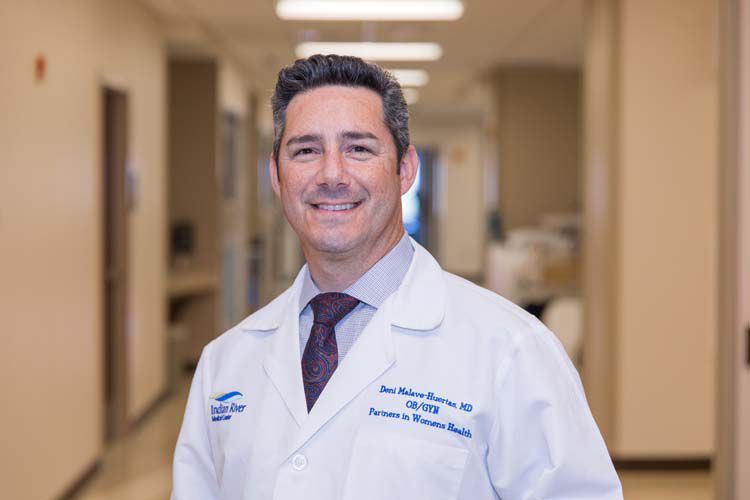Dr. Deni Malave-Huertas is enthusiastically embracing a new, non-invasive procedure intended to help women “reclaim what childbirth or aging may have taken away,” and that procedure is known as vaginal rejuvenation by ThermiVa.
Malave, who is board-certified in obstetrics and gynecology, practices at the Indian River Medical Center and at Partners in Women’s Health. He says the benefits from ThermiVa have been “way more than we expected.”
“It was originally designed,” Malave explains, “as a radio-frequency heat application for electrocoagulation in surgery, but we started seeing that while using the ThermiVa procedure it would help restore tissue collagen. It would help reform it and restore it. And tissue looked kind of firm.”
The radio-frequency heating of tissue, it turns out, changes the collagen contained within that tissue by contracting the molecules and then reorganizing the molecular network.
Plastic surgeons, according to Malave, were among the first to notice and then employ this new procedure, saying “this is something we can use to tighten tissue in a way that’s noninvasive. It promotes the growth and the formation of collagen and restructures that collagen, so it tightens.”
Today, ThermiVa is a staple tool for most plastic surgeons.
Then, says Malave, “one gynecologist said, Hey! This is restoring other tissue. We’re going to try it on vaginal tissue. So we started using it vaginally for aesthetic reasons but it turns out it has other benefits. When you’re restoring – when you’re helping tissue be healthier – you get a lot more improvement in other areas.”
By helping tissue to be stronger, healthier and tighter, patients who could not use estrogen vaginally and had pain or other problems during intercourse can be helped. Patients experiencing certain forms of urinary incontinence and those with certain chronic skin conditions also can be helped.
“Patients who are not candidates for estrogen – estrogen has been a mainstay therapy for a lot of our problems in gynecology, but there are patients who cannot take estrogen for various medical reasons – well, these patients really benefit from a very safe and yet effective [ThermiVa] procedure,” Malave explains, and then adds the kicker: “Vaginally speaking, it can improve the patient’s sex life.”
ThermiVa is also helping patients who have problems with urination, according to Malave: “They start getting incontinent because the flow relaxes enough so that if they cough, urine comes out. So now we’re finding that by doing the ThermiVa and tightening tissue, that problem can be helped as well.”
Malave also uses ThermiVa to treat certain chronic skin conditions such as “lichen sclerosus” that causes patchy, white skin that, the Mayo Clinic says, “is thinner than normal.”
Then Malave makes a somewhat surprising statement. “As a surgeon,” he states matter-of-factly, “I can tell you that any time I can avoid surgery I am happy.
“I prefer to leave the surgery as a last resort. If I have a patient that comes in, say a 65-year-old, and she asks me, ‘I have this vaginal problem, I’m having pain with intercourse. What can I do?’ The first thing I’m going to say is: We can do estrogen but there are risks associated with estrogen. Very low but there are risks. Or we can do ThermiVa. What are the risks associated? Way lower.”
While a surgeon eschewing surgery seems almost groundbreaking, Malave’s obvious enthusiasm for ThermiVa appears wholly genuine. The procedure, he says, is an outpatient one that takes about 25 minutes and is “very similar to a pelvic exam.”
Finally, Malave makes a simple summation on the potential benefits of ThermiVa: “Improving sex life, urinary continence, skin and vaginal rejuvenation. I think it is the total package.”
Dr. Deni Malave-Huertas is with Partners in Women’s Health in Vero Beach at 1050 37th Place, Suites 101 and 120. The phone number is 772-770-6116.

